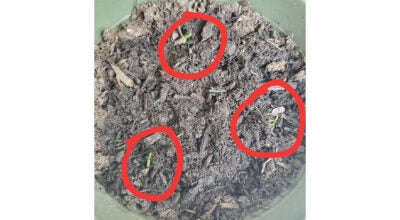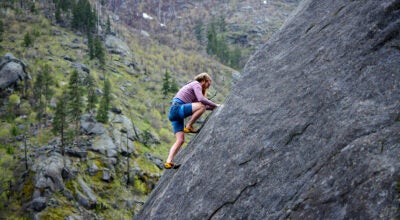The deal with family land
Published 7:45 pm Tuesday, August 28, 2018
In the middle of the Depression, my great-grandfather and his son scraped together enough money to buy 200 acres of land. Its gullies of pines stretched from the northwest edge of Lincoln County to a fresh-water spring hidden behind the white frame house they built. That spring was important. It’s where my dad acquired his work ethic, doing two-a-days, back when that meant milkings instead of athletic practices. He’d haul the brimming cans to the spring, where they stayed cool until a truck made its morning rounds.
The original deed holders also tilled the ground and harvested timber. Babies were born, and one died. On the top of a certain hill, my dad, age 7, was kicked in the gut by a mule. His subsequent splenectomy made the paper. Other newsworthy things happened on that acreage too, I’m sure, but for the most part life went on. Over time the land lessened as a result of sales and wills. The house burned. The spring disappeared under a pond.
Then my brother, raised four hours north like me, took an interest in the “family land.” As a teenager, I visited the broken-down trailer he had situated on its highest spot. That night, mice made a meal of the brownies I cooked. (Funny, he has no recollection of that event.)
Next, he built a cabin on site. Because he is clever, the cabin was, too. It was one of those tiny houses before the hit TV show made them popular. Overhead storage. A loft bed. You get the idea. My main memory of that now-gone structure is standing on its porch after my grandmother’s funeral.
Fast forward. With a wife and baby now in my brother’s picture, the cabin would no longer suit. He built a three-story beauty with all the custom features his artsy mind could conceive, smack in the middle of the woods. I mean it. Not a blade of grass to cut. The pilings of the back deck dropped down into the hillside and the house seemed to float among the tree trunks. There was a pottery studio as well, with kilns and the whole shebang. A tough thing happened not long after the construction crews moved out, though. My brother got a job transfer. For the next years they were a weekend family, even as two more baby girls filled those rooms upstairs.
My bunch lived a couple of miles away on a patch of family land acquired in a more recent decade. When Dad divvied it out in 1998, we soon planted ourselves — along with crepe myrtles, daylilies and an overly-ambitious acre of sweet corn — on our portion. We also tried the dairy goat thing, which sounds romantic to people who buy homemade soap and have never milked one. We threw in that towel after about three years. But I digress.
The deal is this: Family land affords a lot of blessings. Shared birthday parties. Bonfires. Picnics by the creek. Even goats. But the time came when my brother had to put down roots in Indiana. In a most generous gesture, he allowed our Son No. 2 and his bride to take care of his place while waiting for a buyer. No one dreamed the house would stay on the market for five years. No one dreamed that a sixth-generation family member — our oldest granddarling — would live on that land.
Saturday found me in the middle of those woods again, but not as a teenager making brownies or a sister-in-law swapping recipes. This time I was part of a moving crew. I scrubbed the footed tub my brother bought when they were dismantling the old Wesson Hotel. I went up and down (and up and down) stairs where three nieces and three granddarlings have learned to climb. I cleaned out a refrigerator that has fed me more than one memorable Thanksgiving dinner. And I cried.
Some family named Smith is set to sign papers and move in the house next month. They’ll reside on a smidgen of what once was 200 acres of land bought in the middle of the Depression. There’s significance in that.
May God richly bless their family as he has ours.
Kim Henderson is a freelance writer. Contact her at kimhenderson319@gmail.com.





